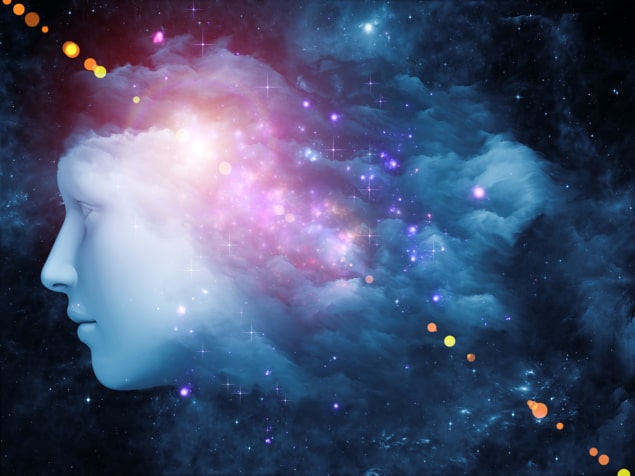Hamish Johnston reviews Existential Physics: a Scientist’s Guide to Life’s Biggest Questions by Sabine Hossenfelder

What can science say about big questions such as how did the universe come into being, or do we have free will? In Existential Physics: a Scientist’s Guide to Life’s Biggest Questions, the theoretical physicist, author and Youtuber Sabine Hossenfelder argues that sometimes science cannot really say much. This is not science’s fault, argues Hossenfelder, but rather it’s because we don’t have enough experimental data to test our hypotheses on some of these weighty issues. What is more, she says that on some of these issues we may never have enough data, putting their resolution beyond science.
Take the origin of the universe. Hossenfelder dissects theories that attempt to describe the Big Bang and what occurred very shortly thereafter. She argues that the problem isn’t with these theories – which she says are mathematically sound – but rather that the theories are based on a dearth of observational data. Astronomers cannot look back far enough in time to glean clues about what happened in the immediate aftermath of the Big Bang, and we can’t currently do experiments that recreate conditions anywhere near those that existed during the birth of the universe.
Hossenfelder dubs these theories as “ascientific” (something that cannot be dealt with using science whatsoever) and goes so far as to say that humans may never have sufficient experimental evidence about the first moments of the universe to test these ideas. As a result, she describes the myriad theories that describe the early universe as “modern creation myths written in the language of mathematics”.
Those familiar with Hossenfelder’s writings and videos will know that she excels at pointing out what she sees as the shortcomings of ascientific thinking in physics. In her latest book she extends these ideas to look at what science can say about a broader range of big questions. For some questions – like do we have free will, and why do we get older and never younger? – Hossenfelder points out that science does indeed have good answers. On other questions – such as does human existence define the laws of physics? – she explains in an entertaining way why science can’t really say much.
So, what is the point of a book with its focus on what we don’t know? I think Hossenfelder wants to make it clear to non-scientists that science is nowhere near to having an answer for every question, and it is perfectly reasonable to conclude that science may never have all the answers. Hossenfelder is careful, however, not to trash the scientific method and leave the reader thinking that science can’t really say much about anything. But she says that scientists should only develop theories that can be tested by observing nature – theories that can be falsified. She also has no problem with theories that can’t be falsified but argues that they are not scientific. Indeed, she believes that such theories can serve a purpose, in the same way that religious beliefs are important.
In these febrile times, some scientists might shudder at this message and how it could affect public trust in areas such as vaccination, where the science is sound. That, of course, is not Hossenfelder’s intention – she rightly believes that a better understanding of the limitations of science will benefit society. This comes across loud and clear in her book, which I found fun to read and really made me think about the scientific method and the big questions in life.
- 2022 Atlantic Books 248pp £16.99hb



